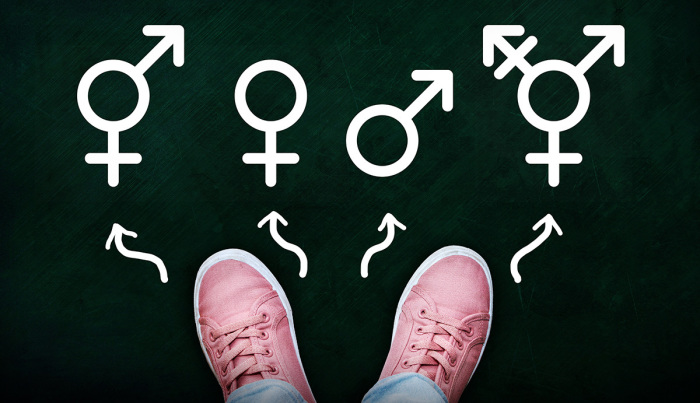New Idaho law declares there are only 2 genders, 'sex' based on biology

The governor of Idaho has signed into law a measure explicitly declaring that there are only two genders, as the idea that there are multiple genders has permeated popular culture and global politics.
On Tuesday, Idaho’s Republican Gov. Brad Little signed House Bill 421 into law. The measure, approved by the Republican-controlled House of Representatives in a 54-14 vote in February and passed by the Republican-controlled Senate in a 26-8 vote on April 10, amends Idaho state law to establish a definition of the term “sex,” clarifying that there are only two genders: male and female. All Democrats in both chambers voted against the bill, while one Senate Republican and three House Republicans broke with their party to oppose it.
The language included in the bill applies to “the compiled laws and rules and policies of the state of Idaho.” The measure defines “sex” as “an individual’s biological sex, either male or female.” It identifies a male as “an individual who has, had, will have, or, but for a developmental or genetic anomaly or historical accident, would have the reproductive system that at some point produces, transports, and utilizes sperm for fertilization.”
Meanwhile, the legislation defines a female as someone who “has, had, will have, or, but for a developmental or genetic anomaly or historical accident, would have the reproductive system that at some point produces, transports, and utilizes eggs for fertilization.” It clarifies that the term “boy” refers to “a minor human male,” while the word “father” is used for “a male parent.”
On the other hand, the measure states that “‘girl’ means a minor human female,” while “‘mother’ means a female parent.”
“‘Gender,’ when used to refer to males, females, or the natural differences between males and females, shall be considered a synonym for ‘sex’ and shall not be considered a synonym for gender identity, an internal sense of gender, experienced gender, gender expression, or gender role,” the bill adds.
The legislation also replaces the previous definition of sex as “the immutable biological and physiological characteristics, specifically the chromosomes and internal and external reproductive anatomy, genetically determined at conception and generally recognizable at birth, that define an individual as male or female” with the new definition in existing laws.
A declaration of legislative intent included at the beginning of the legislation states that “in human beings, there are two, and only two, sexes: male and female” and that “every individual is either male or female.” Stressing that “an individual’s sex can be observed or clinically verified at or before birth,” the measure asserts that “in no case is an individual’s sex determined by stipulation or self-identification.”
“There is increasing confusion about the definition of sex as a biological truth and its relationship to concepts and terms, including but not limited to gender, gender identity, gender role, gender expression, and experienced gender,” the legislation explains. “Confusion and ambiguities surrounding the definitions of sex, male, female, and related terms can hinder individual efforts to enjoy equal treatment under the law.”
Emphasizing that “legal equality of the two sexes does not imply that the sexes are identical to each other or are the same in every respect,” the bill maintains that “separate facilities, housing or sleeping arrangements, or sports teams, programs, or leagues established because of or organized according to physical differences between the sexes does not constitute unequal treatment under the law,” adding, “Physical differences between males and females are enduring, and the two sexes are not fungible.”
The passage of House Bill 421 comes at a time when adherence to the idea that sex is determined by biology is interpreted as hostile to the LGBT community, some of whom identify as a made-up gender other than their sex or identify as non-binary or identify as one of several fake gender identities. Last year, a professor at St. Philip’s College in San Antonio, Texas, was fired because he said sex is determined by an individual’s chromosomes.
That professor, who was ultimately reinstated earlier this year after filing a complaint with the Equal Employment Opportunity Commission, had been terminated due to allegations that he engaged in “religious preaching, discriminatory comments about homosexuals and transgender individuals, anti-abortion rhetoric, and misogynistic banter” by stating a biological fact.
At the same time, gender identity is emerging as a protected class in American society.
In the 2020 case of Bostock v. Clayton County, the United States Supreme Court ruled that the protections against discrimination on the basis of sex in federal civil rights law also apply to sexual orientation and gender identity.
In some countries, “misgendering,” a term misused by trans activists to defame those who correctly identify a person's sex, can have even more adverse consequences. A Mexican congressman and civil society leader have found themselves subject to prosecution for using male pronouns to refer to a trans-identified lawmaker in Mexico who self-identifies as female.
Ryan Foley is a reporter for The Christian Post. He can be reached at: [email protected]




























